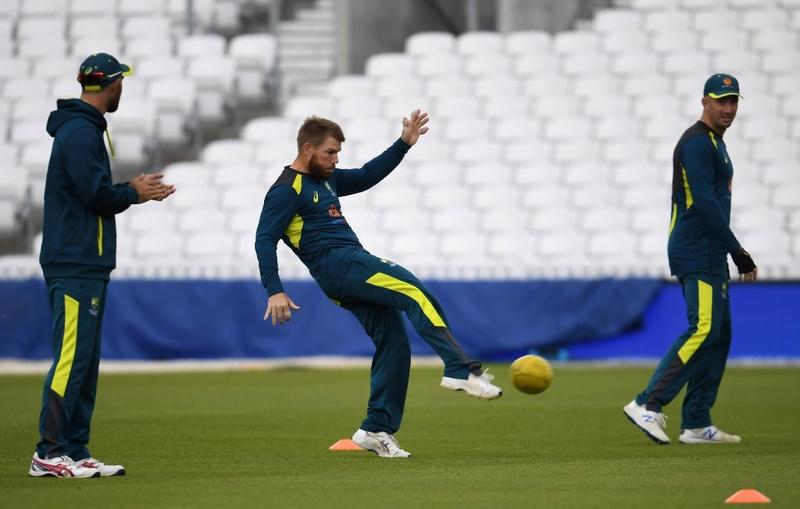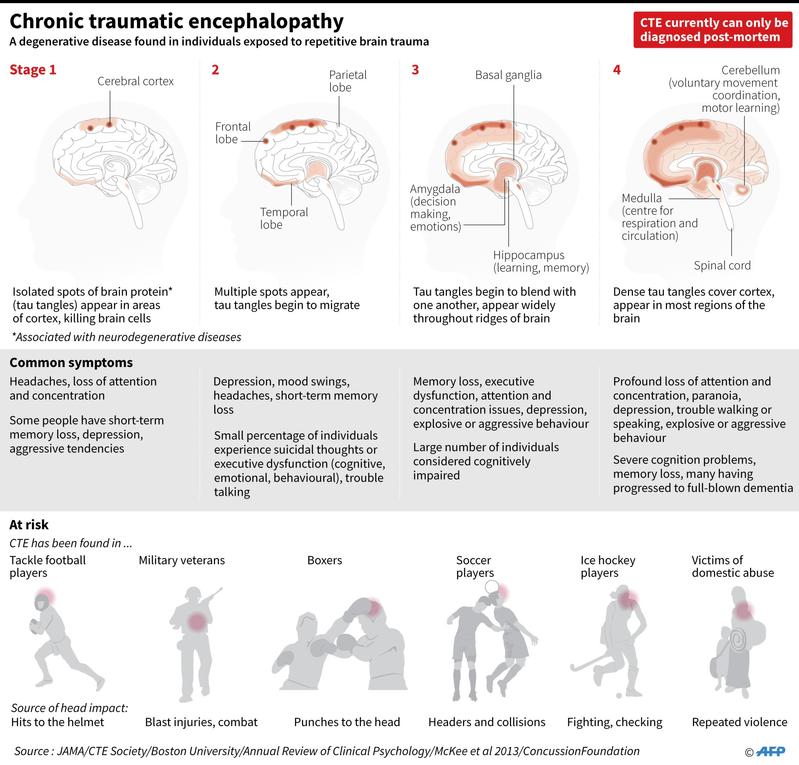 In this June 8, 2019 photo, Australia's David Warner (center) plays with an Australian Rules Football as he takes part in a training session at The Oval in London ahead of their match of the 2019 Cricket World Cup against India. (DIBYANGSHU SARKAR / AFP)
In this June 8, 2019 photo, Australia's David Warner (center) plays with an Australian Rules Football as he takes part in a training session at The Oval in London ahead of their match of the 2019 Cricket World Cup against India. (DIBYANGSHU SARKAR / AFP)
SYDNEY - For the first time ever, a former Aussie Rules Football player has been revealed to have chronic traumatic encephalopathy (CTE) -- a degenerative brain condition brought on by repeated head injuries.
Making the announcement on Thursday, Clinical Associate Professor Michael Buckland from the University of Sydney's Brain and Mind Centre warned "CTE is real, and it is here in Australia. We need to address it as a priority," he said.
While Aussie Rules Football is revered around the world for its toughness, blows to the head occur much less often than in many other contact sports
Often referred to as 'Punch Drunk Syndrome,' in the past the condition was mainly associated with aging boxers.
In more recent years, numerous cases of CTE have rocked the United State's NFL code and heightened calls for more to be done in order to protect athletes across a range of different sports.
ALSO READ: First Chinese national set to represent elite Australian rules football club
While Aussie Rules Football is revered around the world for its toughness, blows to the head occur much less often than in many other contact sports.
"While we know that the gameplay of Australian rules football is very different from that of other contact sports, the changes related to CTE were strikingly similar," senior author of the research Buckland said.
 This AFP graphic shows the stages of chronic traumatic encephalopathy, a degenerative disease found in individuals exposed to repetitive brain trauma.
This AFP graphic shows the stages of chronic traumatic encephalopathy, a degenerative disease found in individuals exposed to repetitive brain trauma.
"A knock to the head is a knock to the head, regardless of the circumstances in which you get it."
Although the specific athlete was not named in the report, Buckland said: "this player played more than 350 games over 19 years in the West Australian and Victorian football leagues."
"At the age of 64, he was diagnosed with Alzheimer's disease. Our findings demonstrate severe CTE occurring in conjunction with intermediate level Alzheimer disease pathology."
READ MORE: Folau sacked by Rugby Australia over social media post
With CTE only able to be diagnosed after a person is deceased, researchers highlighted the importance of the Australian Sports Brain Bank, which allows athletes to donate their brains to science after they have passed.
Run by Royal Prince Alfred Hospital in partnership with the University of Sydney, since it was established in 2018, more than 250 athletes have pledged their brains for research.


